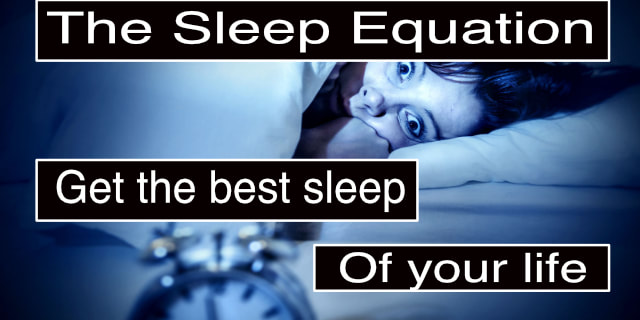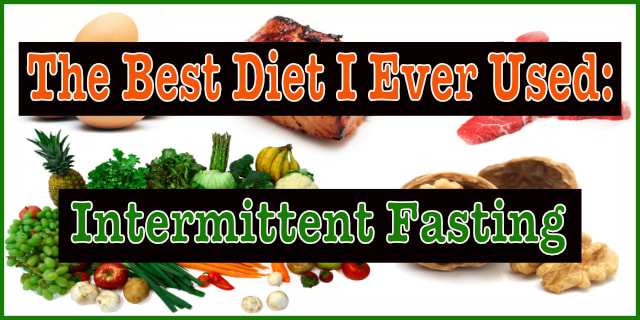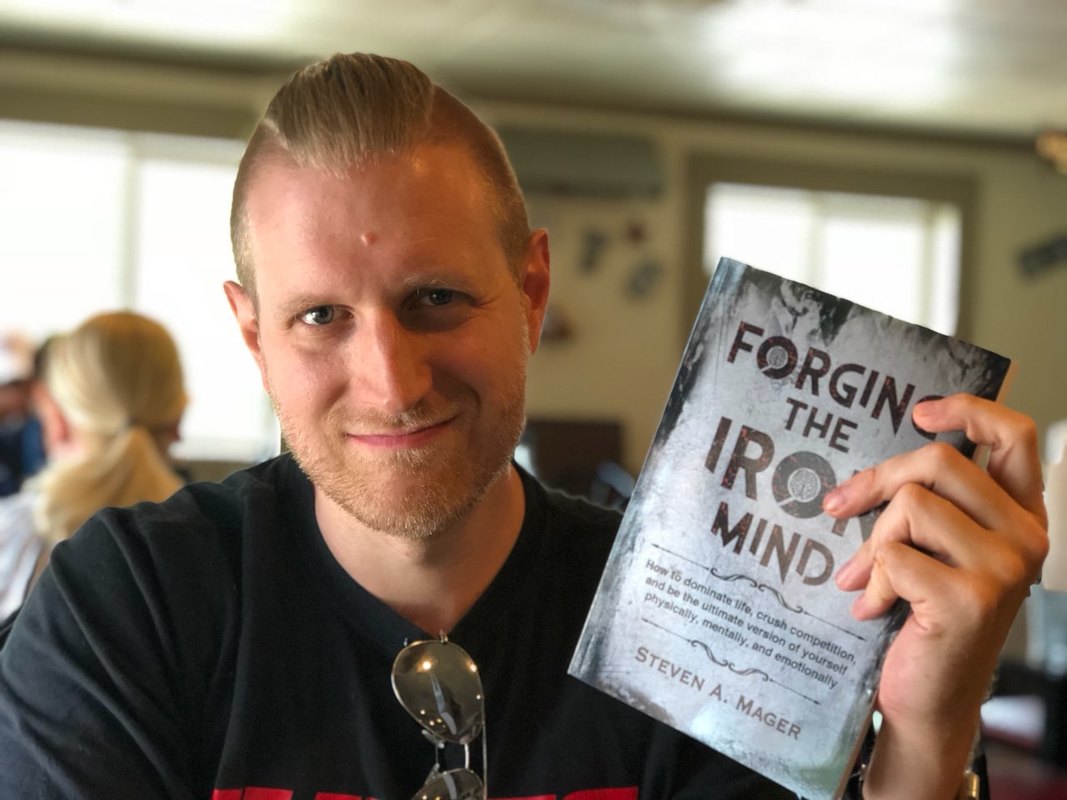|
I used to sleep like I was the world champion of slumber. If I wanted 8 hours, I did so easily and without interruption. Every so often on a day off, maybe I’d get ten if I felt so inclined. And, every so often I’d get 4 or 6 hours, and still handle things just fine.
Those days are over. For the past few years, I’ve battled to get a functional level of sleep, and I have tried seemingly everything to get back to the refreshment I used to experience every morning. Was I just getting older? New life circumstances? Mental stress? I had no idea, but it nearly broke me in the process of figuring it out. Sometimes I couldn’t get to sleep, other times I’d wake up and couldn’t fall back to sleep, tossing and turning all night. Other times I’d be up urinating multiple times, then lay there while frustration set in, further impairing my ability to sleep. So now, after battling this for several years and testing every conceivable variable under the sun, I’ve finally returned to an approximation of the sleep I used to get, so I thought I’d write this article in case anyone else needed help with their sleep patterns. I won’t be addressing mental issues such as depression or stress,(see other articles) so I’ll stick to mostly physical and environmental issues that can negatively impact sleep. Here is the first thing you need to understand: Good sleep has multiple variables. It is unlikely that any one thing will outright fix the issues you’ve had, so there are many things that need to align in order to get you that restful sleep you desire. That’s why this article is called the Sleep Equation, sometimes it feels like tweaking an algorithm messing with one area of your sleep without messing .up in another. So without any further delay, here’s the list of all the things I’ve tried that finally helped me, and I hope helps you. 1. Temperature: My ability to fall asleep and stay comfortable improved dramatically once I started setting the thermostat from 66-69. 2. Snug factor: Coupled with the cooler temperature, I introduced heavier blankets, which I believe made a difference in my level of comfort. Feeling snug under piles of blankets helped a great deal. 3. Less meat at dinner: This one was a shocker. I normally eat massive quantities of meat in general, so I never considered that it might be a problem. One day I skimmed an article about vegan pro wrestler Tyler Bate. In it, he mentioned that once he went vegan, he slept considerably better. Now, I’m not going vegan, no way in hell, but I thought maybe reducing protein could help. Turns out, that was right on the money, and I found an article (which I can't find now) confirming just that. It seems the body can’t relax properly if it’s processing too much meat, at least in some cases. This is an example of “not every body is the same.” For me, once I dropped down to quarter portions, it made an immediate impact. 4. Cereal before bed: I used to do this all the time my good sleep days, but never associated it with being a reason I was sleeping so well. Turns out after some research that some level of simple carbs are good before bed to spike serotonin levels, making for more restful sleep. Which leads me to my next, and most significant one. 5. Low carb diets wrecked me: Everyone is different, and there are those for whom this diet worked wonders. For me however, this was a nightmare. I slept poorly, and never felt good in general. I will never try this diet again, or at least not at the near zero carb levels I was doing. 6. Supplements: I tried every supplement under the sun. GABA, various blends of Zinc, Magnesium, and Melatonin, none of which really got the job done consistently. I also took some over the counter testosterone products that contained stuff like tribulus, which produced far worse sleep as well. I never wanted to use actual sleep meds (such as Ambien), since I felt like that was only obscuring, rather than actually fixing the problem. 7. Comfort: Should be obvious in accordance with the Snug Principle mentioned above, but try to get a comfortable mattress, sheets, and pillow. This might take some doing, for me the pillow was the hardest one to find, and highly specific to the individual’s sleep patterns. The tricky part is not getting frustrated while you make incremental adjustments daily. 8. Citric Acid and Carbonation: It is impossible for me to overstate what a revelation this was. I used to urinate at insane levels, as there would be times I’d go 4 or 5 times in a hour. The culprit? Acidic and/or carbonated drinks. Worse still, nearly everything has one or the other. The little Mio flavorings I used were wrecking my bladder, and it took years to figure it out. I just always assumed that’s just how it was, that I urinated a lot. Turns out, citric acid is in all of the stuff I like to drink. What used to really nuke my bladder was Monster Energy Citrus. These drinks have a lot of adverse effects, so keep an eye on your consumption. These can have adverse effects on your bladder and consequently, ruin a good night of sleep. 9. Water Retention: I take a lot of supplements that cause excess water retention such as Creatine and Citrulline. Even if you drink nothing for half the day, you are likely to still urinate a lot in the middle of the night due to your body purging excess water. If you are retaining water, you are more likely to have to get up to urinate in the middle of the night. 10. Work out: I hope this is blatantly obvious, but if not, here it is. Even if all you do is walk, get some level of physical activity and motion. So there you have it, years of trial and error boiled down into one article. Hopefully this helps, and if you know anyone with sleep issues, please share this and hopefully we can all sleep a little better at night. Steve Mager If you enjoyed this article, please share it and follow me on social media: Facebook: www.facebook.com/StevenAMager Twitter: https://twitter.com/StevenAMager Instagram: https://www.instagram.com/steve_mager/ Get my book, Forging the Iron Mind: [https://amzn.to/2uxRvCs]
1 Comment
If you trained hard in the late ’90s then you know one supplement came as close as we’ve ever gotten to a magic bullet for weight loss and energy:
Ephedrine. This supplement, found in iconic products such as Ripped Fuel and Stacker 2, along with the venerable ECA stack (Ephedrine, Caffeine, Aspirin) fueled innumerable workouts of myself and my friends. These products were capable of elevating a lousy workout to good, and good to exceptional, based on the seemingly never-ending font of energy they produced. For years, I took these products in frankly unsafe levels, getting to the point where I was overdosing nearly every day, just to get that jacked, machine-like rampage going in the gym. I remember nights of partying and drinking, then waking up on 4 hours of sleep, popping a few Stacker 2s, then going berserk in the gym. Even if I was utterly wiped out, this pill could bring me back from the brink, and power up a great workout. Such was the power of Ephedrine. No supplement, before or since (save steroids and prohormones) has produced such a noticeable effect on energy levels and weight loss. As a matter of fact, no one even tried to argue it wasn’t effective. So how did a supplement, the core of which had been used in Chinese medicine since the Han dynasty with over 2000 years of history, get banned? The same way a lot of the first wave of Prohormones (over the counter steroids for all intents and purposes) did: Baseball, coupled with pharmaceutical and insurance companies. The FDA had been looking into Ephedrine since the early ’90s, but nothing serious ever came of it, given the long history it has had globally. They would issue a report or white paper, call it a day and move onto the next thing. Then, on February 16th, Orioles pitcher Steve Bechler died after a workout, and subsequent toxicology showed that he had Ephedrine in his system. This was all the impetus needed to move on Ephedrine, even though he had multiple other health issues, and had overdosed Xenadrine on a hot day without hydration. Even the doctors stated that they could not conclusively prove ephedrine was the cause of death, and many others have died of heat and exercise problems without Ephedrine. In the wake of this death, paper after paper was released detailing the potentially harmful effects of Ephedrine. Immediately, within one month, the FDA issued proposed rules to regulate the supplements, and in less than a year, a blanket ban on Ephedrine had been issued. Frankly, I’m not sure I’ve ever seen the government resolve anything this quickly, but here we were, watching a supplement used for thousands of years get banned despite a complete lack of factual basis. The key to this whole thing is understanding that the FDA bows to pressure from outside groups and utilizes tainted scientific data. In my book, I showed how Coke paid scientists in the ’60s to shift the blame from sugar to fat for obesity and heart disease, to keep people slugging down sugary sodas. The FDA is the organization that spent decades recommending an aspirin a day, only to retract the recommendation many years later. People would even have side effects from an overdose of ASPIRIN, showing that any drug can be potentially harmful. Banning cocaine, or heroin, or steroids were one thing, but the Ephedrine ban was the first moment I can remember where the government banned something that was only theoretically dangerous. In the wake of the Ephedrine ban, many more effective supplements got the ax as well. So, how did this all happen? Take a look at all of the most effective supplements that have been banned, or are in the process of being prohibited or restricted. Ephedrine, Glutamine, CBD Oil, and even Prohormones are all highly effective, and also dirt-cheap. These have either been banned already or are on the chopping block. In addition, they all have prescription alternatives that are insanely expensive. Adderall, Testosterone Replacement and the like are prescribed like candy and are not only more expensive but highly addictive. Take a look at TRT (testosterone replacement therapy). In the old days, if you wanted to get jacked, you just ran a cycle of over the counter Androstenedione, the supplement that Mark McGwire took when he was blasting baseballs into the stratosphere. It would amp your Testosterone levels, you’d get jacked, then come off of it for a while and everything was great. Sure enough, Andro and its variants were too effective and too cheap. Andro gets banned and placed in the same category with actual steroids; meanwhile, Big Pharma comes up with a way to keep you jacked 24/7/365 by completely replacing your natural testosterone production, and calling it TRT. So now, instead of popping some cheap Andro for a few months, then taking some time off, you now get to completely replace your natural testosterone production, for a nice tidy monthly payment, since coincidentally, no other method is legal. All you have to do is never come off of it, since it completely stops your testosterone production, permanently. Better hope you never lose your health insurance package on that one. I used to think the banning of supplements was just a sort of nanny state overreach by the government. It is, but keep in mind, these FDA and government officials have been shown information that they believe to be correct. Not all of them are corrupt bureaucrats, rubbing their hands together like super-villains, most are probably actually being deceived. The real question is who commissioned the studies that showed Ephedrine to be dangerous and presented them to the FDA? Which group got paid for the studies? What about Andro? Who stands to gain by a particular supplement being banned, when there is a permanent pharmaceutical replacement available at a much higher cost? Remember, the next time you take some absurdly expensive prescription and pay a ludicrous amount each month for insurance, that at some point there was likely a dirt cheap version that got shoved off the life raft in favor of prescription medication. Steve Mager If you enjoyed this article, please share it and follow me on social media: Facebook: www.facebook.com/StevenAMager Twitter: https://twitter.com/StevenAMager Instagram: https://www.instagram.com/steve_mager/ Get my book, Forging the Iron Mind: [https://amzn.to/2uxRvCs] I bet that title got your attention. People love the idea of some magic bullet diet that allows them to eat dessert or chocolate or ice cream while getting shredded at the same time. We fool ourselves into thinking all sorts of ridiculous things and justifying cheating on diets, such as having a bacon, egg, and cheese biscuit because we did 10 minutes of light walking on the treadmill. Most of the time, this is wishful thinking; however, today I’m going to explain how it is entirely possible to have foods you like, and still get into shape.
First, let me establish just how much I love Pop-Tarts. Since I was a teenager, I have eaten them nearly every day as part of a meal or just a snack. Despite small breaks while testing new diets, I would estimate that throughout the last 25 years, that I have eaten a pack of Pop-Tarts 4 days week on average. Many years went by where that number was 7, but I’ll just use four as the average. That means that I have consumed over 10,000 Pop-Tarts in my life, and I’d wager the number is higher. So when I say that I love them and have worked them into nearly every diet, I’m not even slightly joking. The other food I love is pizza, notably Domino’s Pan Pizza. On average I have eaten one Domino’s Pizza a week for at least 20 years. Sometimes more, sometimes, less, but I’d put the average around one. In other words, these are two foods that I find a way to work in, no matter what. So how is this possible? How have I managed to get lean and cut eating crap like this? I wrote in my book that these are terrible for you, yet I manage to work in cheat meals all the time. First, I’ve expressed my belief that cheat meals work. One, they allow for a potent reward system. Two, they keep your body from adapting, which it does. Three, for me at least, they keep me sane. Understand this: losing fat is purely a game of calories in-calories out. We all have a baseline amount of calories we need to maintain our current weight. Above that number, we gain, and below we lose. That’s an incredible oversimplification but still retains its inherent truth. Thus, if I need 2500 calories to maintain my weight, and I eat 2000 + a Pop-Tart, I’m still in an energy deficit, so I will still lose weight. One of the reasons exercise works is that it burns calories, putting us below the threshold we need to lose fat. The other way I get away with this is by being very active. I walk the dog every single day, hike a fair amount, lift weights, and do cardio. I mentioned earlier that I change whether or not I eat Pop-Tarts based on the diet, which is true. In any low carb or Keto diet, they are a total non-starter. I am not a fan of those diets, and prefer an intermittent fasting diet with carb cycling, as I detailed in my previous article. I recently cut twenty pounds, and I did it eating one Pop-Tart a day instead of my usual two, and reducing my pizza from one a week to once every two weeks. In addition, I also ate bacon every single day of my diet. So yes, I ate bacon, Pop-Tarts, and pizza while dieting and lost twenty pounds. Let that sink in. Here’s what I ate while doing an 18-20 hour intermittent fast with two meals (easily adjusted for 16hr / 3 meals): Breakfast: 6 eggs / 3 Strips of Bacon / Oatmeal (different daily due to carb cycling) / half-tbsp of natural peanut butter. Dinner: Chicken or Steak / Rice (amount varies due to carb cycling) / Handful of mixed nuts / Broccoli and Carrots / One Pop-Tart Mostly, the meal stayed the same every day except for the carb sources. On low days, I kept the carbs at less than 50 (I weigh 215 so adjust accordingly) on median days about 120, then on high days about 200. Once in a while, I would go down to zero for a day, and then on some days be well over 200. The theory is that carb cycling in this manner while keeping protein high keeps the body from adapting, and keeps it in a constant state of fat loss. I also used high days as replenishment for big workouts, so if I worked legs or back, for example, I’d have higher carbs that day, then fewer on off days. Look, the reality is, of course it would be better not to eat anything processed or junky and be completely hardcore 24/7. I’ve done that. Make no mistake; I’ve done diets that made me want to kill myself. The reality is though, I love certain foods, and if I can lose weight and get into shape while still eating a damn Pop-Tart, I’m going to do it. The way I view it is that if I can stay clean 90+ percent of the time, that one Pop-Tart isn’t going to make or break me. Remember that at the end of the day, none of this works without your dedication. I establish machine-like rituals for these meals and workouts and do not deviate, setting myself up for success. For the techniques I use to achieve this, check out my book, Forging the Iron Mind. Do you have a crazy food or method that allows you to cheat drastically? Let me know! Steve Mager If you enjoyed this article, please share it and follow me on social media: Facebook: www.facebook.com/StevenAMager Twitter: https://twitter.com/StevenAMager Instagram: https://www.instagram.com/steve_mager/ Get my book, Forging the Iron Mind: [https://amzn.to/2uxRvCs] Welcome to my first blog on my author site. I figured I’d come right out of the gate with an article about one of the more difficult things we all have attempted and likely failed at before: our diet. I wrote about this extensively in Forging the Iron Mind concerning what foods to eat and what exercises to do, and most importantly, the mind frame to set to make it all successful. Today, I am going to talk about what is easily my favorite diet I’ve ever run: Intermittent Fasting. Keep in mind that the “best” is relative. Make no mistake, every diet works, it’s only a matter of which is going to be the easiest for you to stick to for long periods. For a bit of background, I have been dieting and lifting weights and even powerlifting for over two decades. I have tried every diet in existence, from low carb to carb cycling, to 40-40-20, and more. The only thing I’ve never tried, and never will, is either vegetarian or vegan, which I will likely write about at some point. For now, though, let’s talk intermittent fasting.
Intermittent fasting is the idea that you have a “feeding period” ranging anywhere from 4-8 hours, and fast the rest of the time, consuming a net zero calories. You can consume coffee, tea, diet soda, whatever, as long as there are no calories for your body to process. Why even do this diet? What does it bring to the table that no other diet does? I’ve had success with other diets, so why even try this? First, there is a significant amount of science that once you pass the 16-hour mark, your body kicks into a sort of advanced fat burning state. Inflammation is supposed to be reduced, nutrients absorbed better, and fat burned more efficiently. This was all difficult for me to swallow, because I come from a traditional bodybuilding standpoint of eating every two or three hours, and I’ve had success using multiple other diets, so why even do this? It’s certainly the latest “fad,” and many people I respect are into it, so I figured hey, why not give it a try? For me, the most significant barrier was psychological, as I found the idea of not eating for 18-20 hours insane. However, I set my mind to do it, and after the first day, it became much easier because I passed the barrier of doing it once, and after that, it became orders of magnitude easier. Once I’d established in my mind that I could do it, and a lot of the hunger pangs were psychological, it became incredibly easy. After the first two weeks, I had my answer as to why this was the easiest diet I’d ever run, and it wasn’t because it was doing anything magic in regards to fat loss. I’ve gotten in great shape on other diets, so I knew I could lose fat without fasting. Intermittent Fasting was the best I’ve tried because it was insanely easy to stick to and not cheat. One concept I wrote about in Forging was the idea of establishing absolutes as it relates to the habits in your life, and how effective this tactic is. Intermittent Fasting falls right into this incredibly easy. With other diets, you are kind of free to eat *whenever* you want. The only regulation you are really doing is *what* you are eating. Thus, psychologically, it is easier to justify some cheat food in your mind with the justification that you can make it up later or to get some craving fulfilled. On intermittent fasting, the *timing* is what matters. Once you commit to IF, the rules are set in stone regarding when you can eat; thus it makes incredibly easy not to cheat. The other element is that the shorter the feeding window, it actually gets easier, not harder to not cheat. At one point I moved the fasting window to 20 hours, leaving myself a 4-hour window to eat. With a 4 hour window, I was packing two gigantic meals, and it barely even occurred to me to cheat because I was so packed with food during my window. To put it another way: Intermittent Fasting is by far the LEAST MISERABLE diet I’ve ever run, and make no mistake, I’ve tried some that made me want to die. The only challenging spot is that last hour before feeding, which is still far easier than other diets where I dealt with cravings all day. Other than that, I was shocked at how absurdly easy it made the dieting process. I dropped 20 pounds with as little effort and annoyance as I’ve ever had, and what’s more, I allowed myself a big cheat day once every two weeks, so I was still wrecking pizzas and bacon, egg, and cheese biscuits once in a while. During this entire process, I was also lifting every other day, and doing only the most basic cardio, such as walking the dog and going to the park on hiking paths, so I wasn’t even remotely killing myself concerning cardio. I don’t run due to foot problems, and I only do low impact cardio on the bike at the gym. Don’t get me wrong, I was lifting at a pretty intense rate, but my cardio was extremely minimal, so any fat loss was undoubtedly the result of diet, not crazy cardio. At the end of the day, results are what matter. Understand that “losing weight” is purely a calorie in - calorie out equation. If you burn more calories than you take in, you lose weight. In addition to the above reasons I stated for liking IF, it also makes it much easier to stay in a calorie deficit, and not feel as though you are. Since you are eating maybe twice, it is far easier to manage your calorie intake, since you don’t have to worry about eating all day long. Here’s what I ate: Breakfast: 4 whole, 2 white eggs, 2-3 bacon strips, half oatmeal serving, half tbs of natural peanut butter. Dinner: Chicken or Steak, Scoop of rice, a handful of nuts, one pop tart. Yes, you read that right, I dropped 20 pounds eating bacon and pop tarts. I also cycled carbs depending on whether I lifted weights that day. So if it was a lifting day, instead of a half serving of oatmeal, I did a full serving, and instead of one scoop of rice, I did two. Incredibly easy to manage. Remember that as long as you are in a calorie deficit, you will lose weight. After the past several months, I’m pretty sold on Intermittent Fasting as the “best” diet. What about you all, what has worked for you? Comment or hit me on social media and thanks for reading! Steven Mager If you enjoyed this article, please share it and follow me on social media: Facebook: www.facebook.com/StevenAMager Twitter: https://twitter.com/StevenAMager Instagram: https://www.instagram.com/steve_mager/ Get my book, Forging the Iron Mind: [https://amzn.to/2uxRvCs] |
AuthorSteve's blog where he talks about anything and everything: writing, fitness, mindset, movies, TV, and his favorite stuff. Archives
November 2019
Categories
All
|
Copyright © 2015







 RSS Feed
RSS Feed